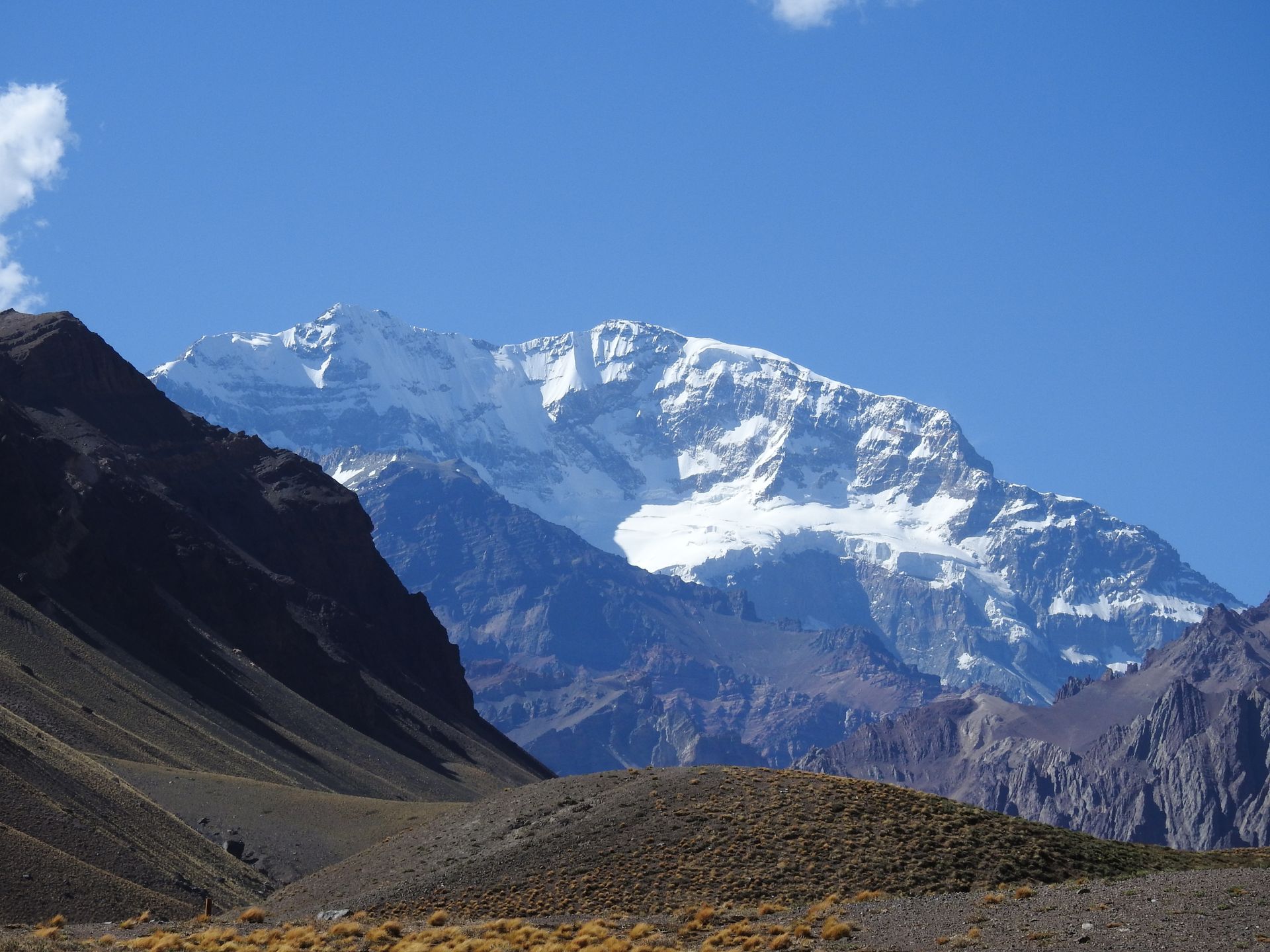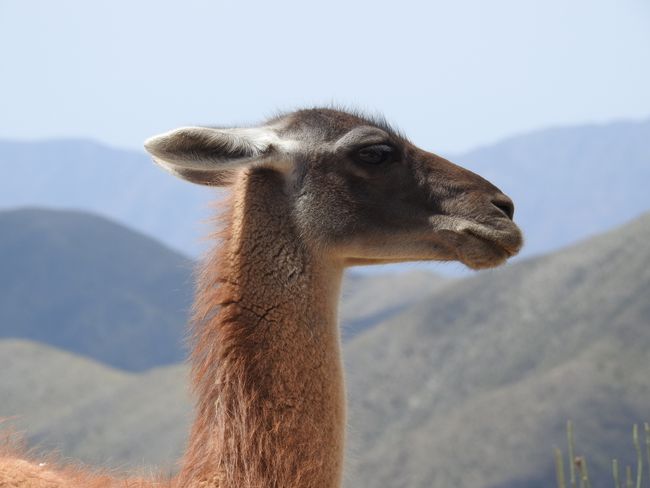
steiners-on-tour-2020
vakantio.de/steiners-on-tour-2020
Blog 12 / Isla Grande de Chiloe
Wotae: 01.02.2020
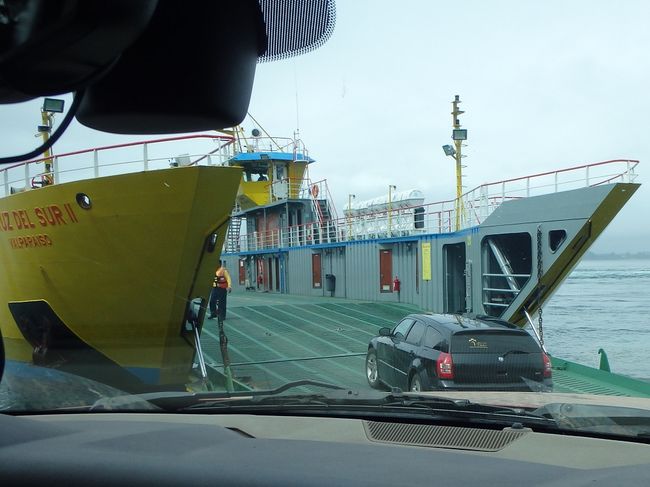
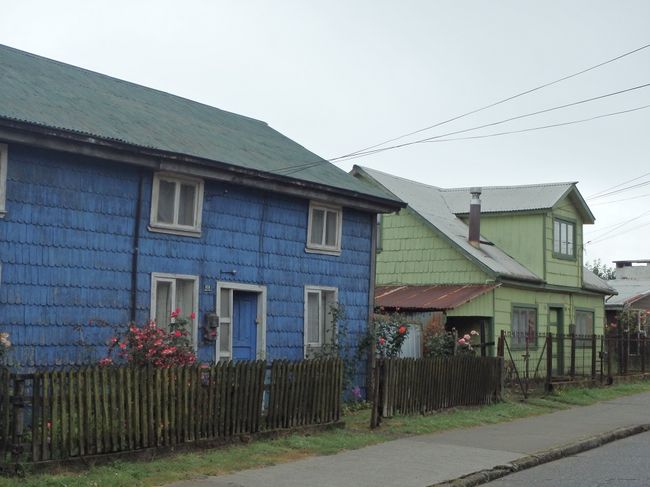
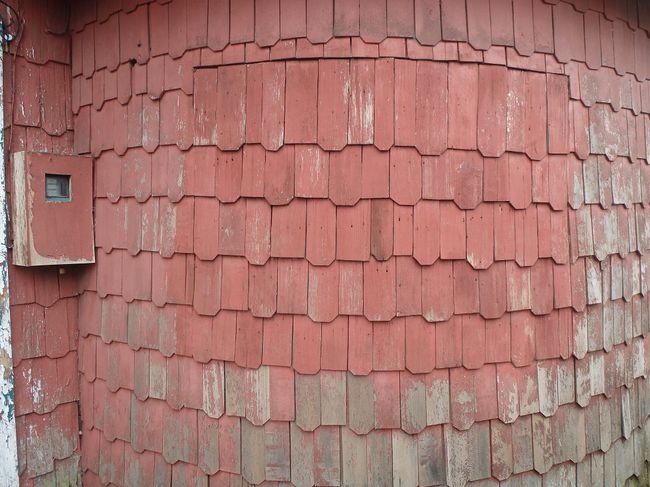
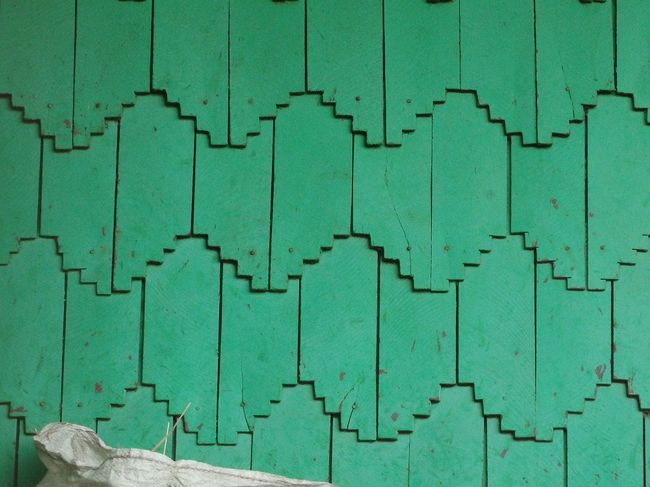
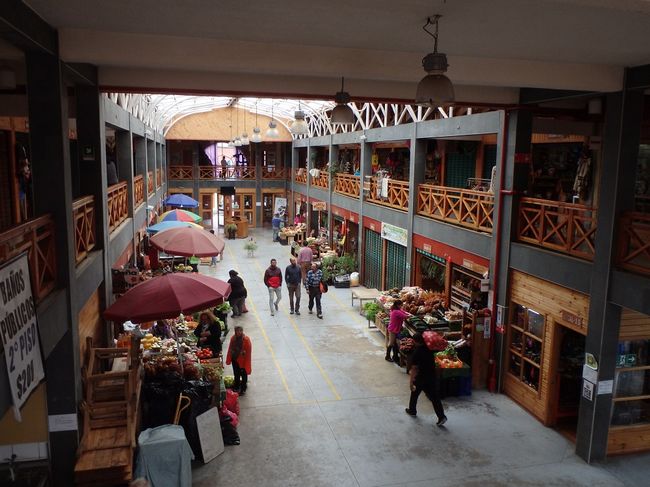
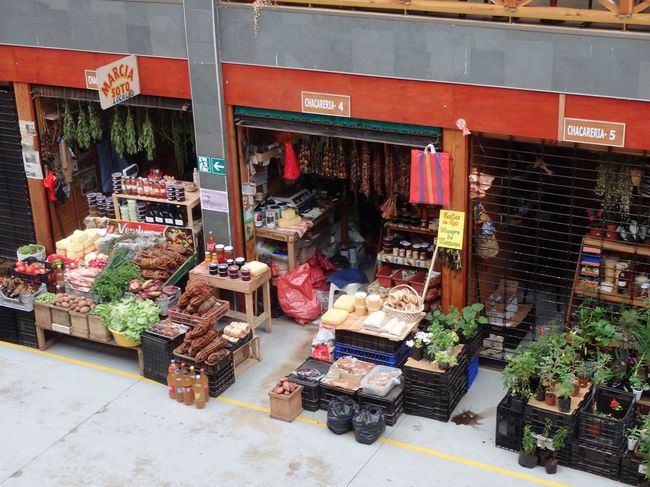
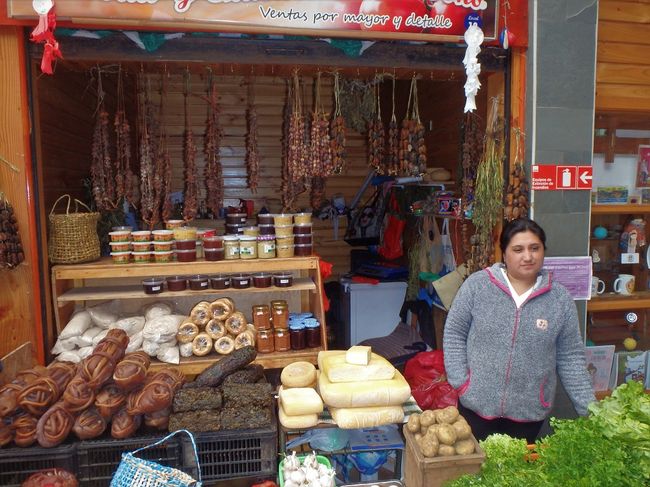
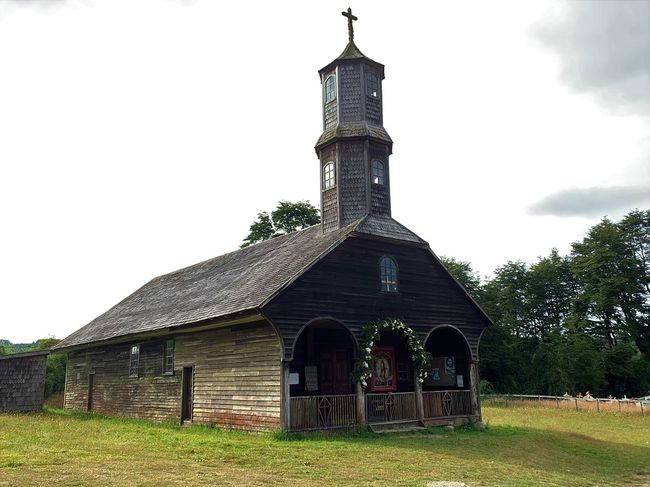
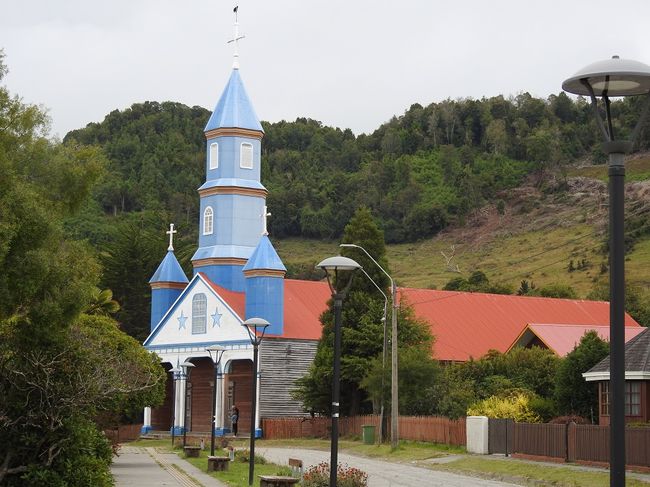
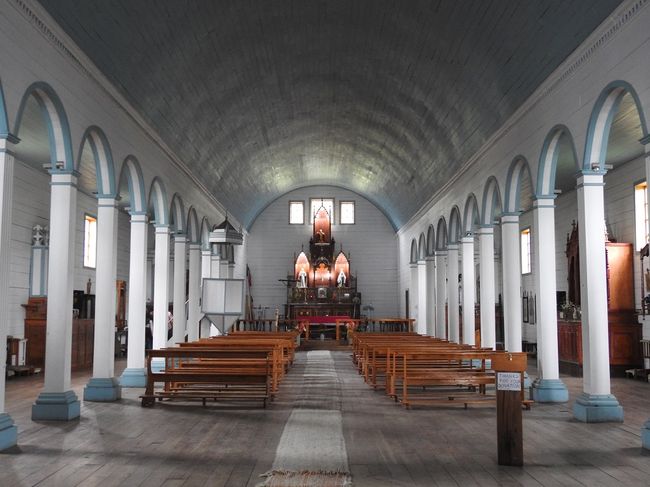
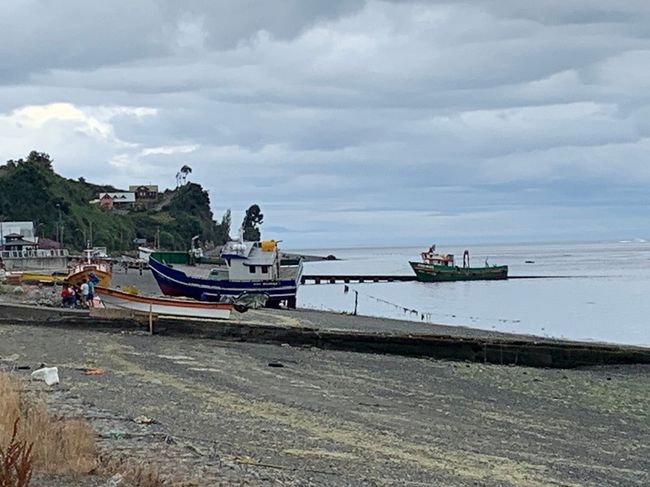
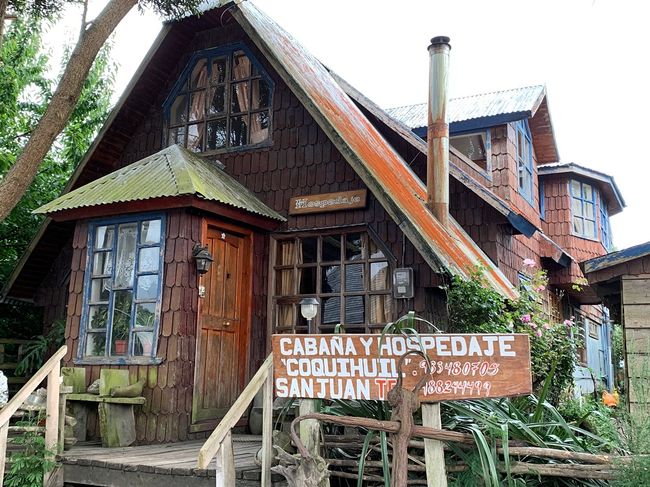
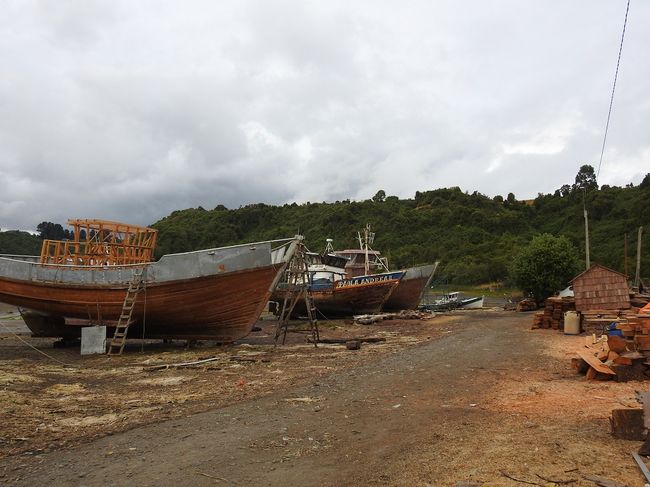
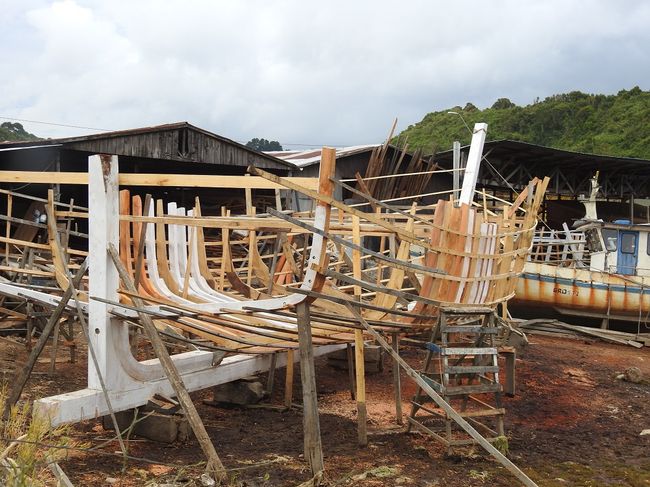
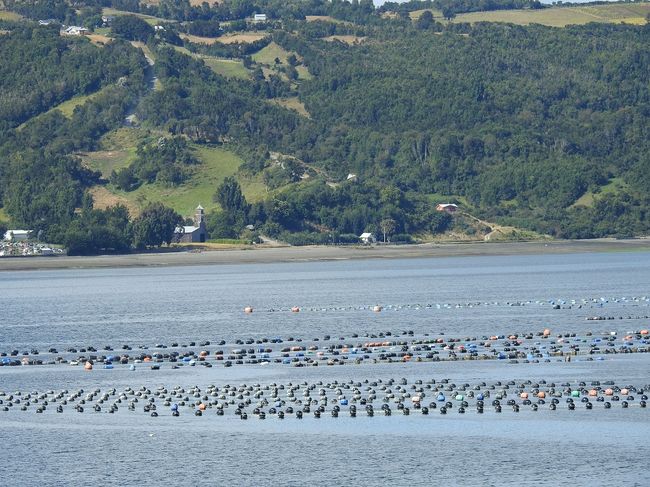
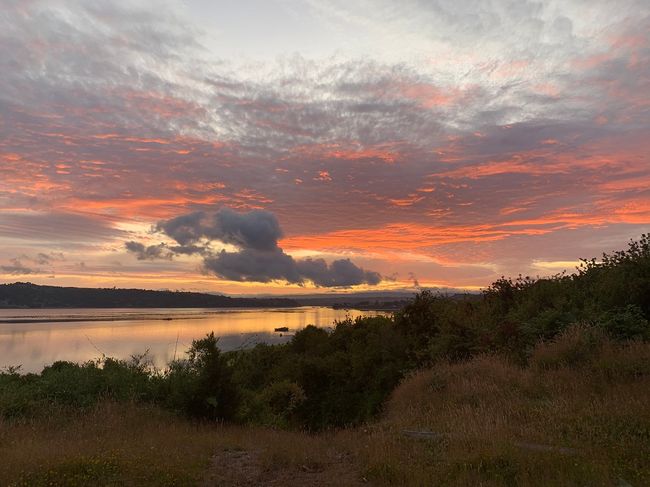
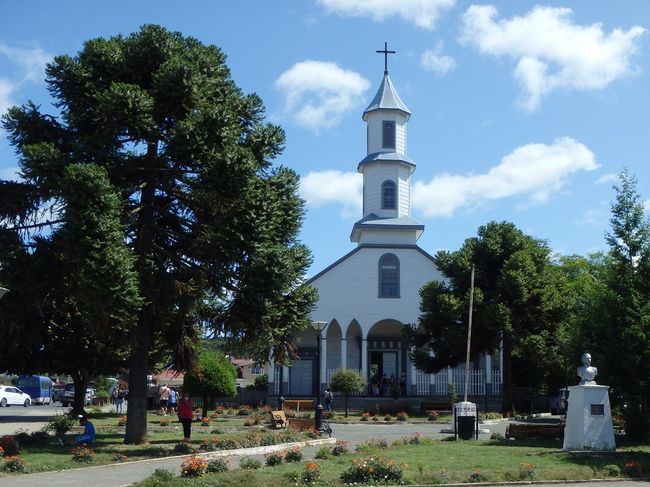
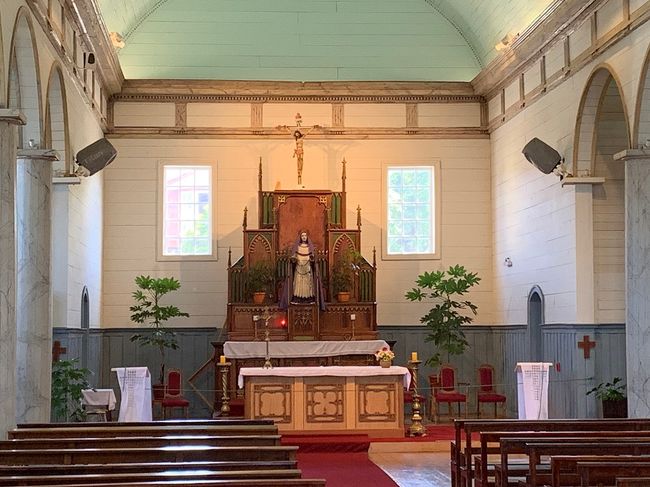
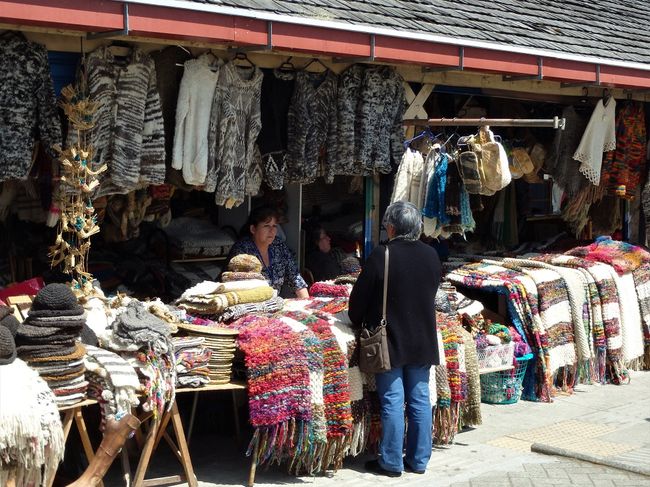
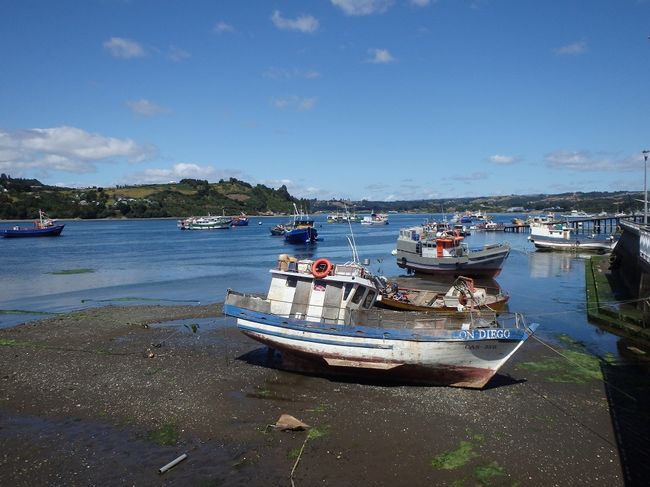
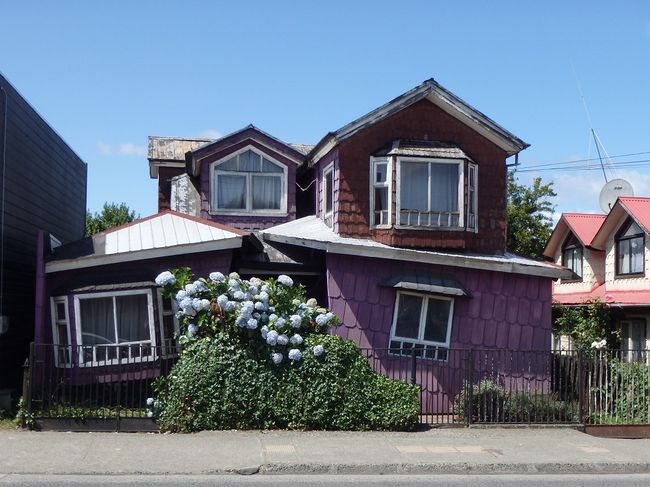
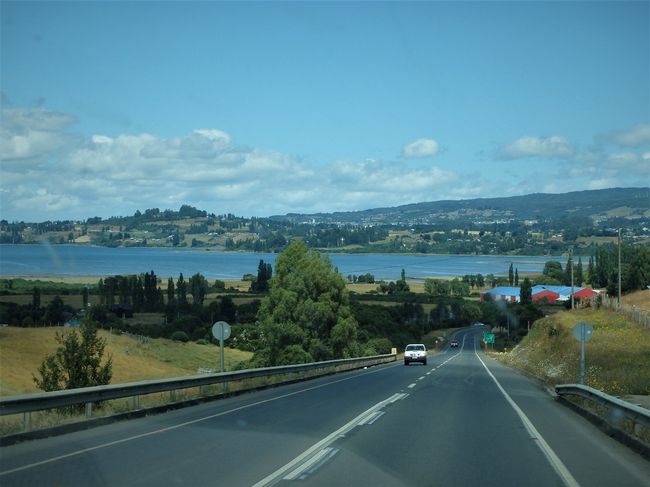
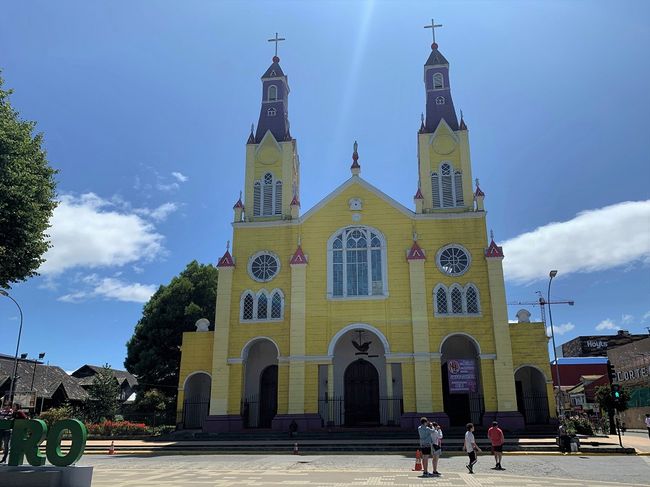
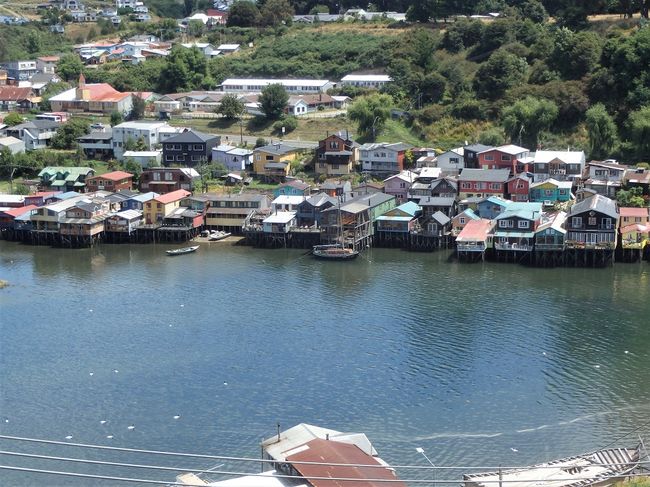
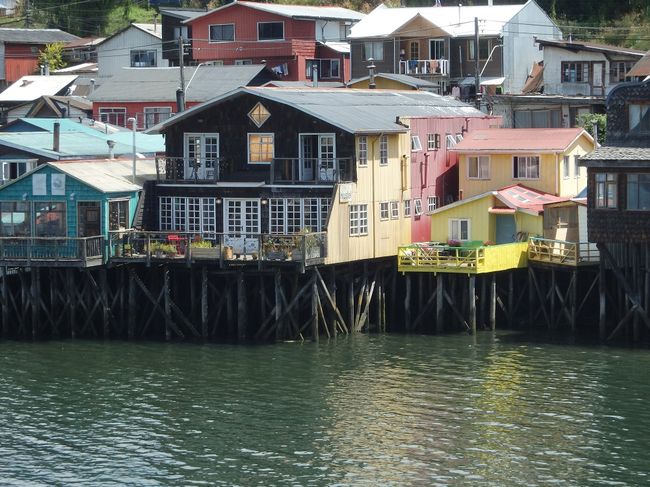
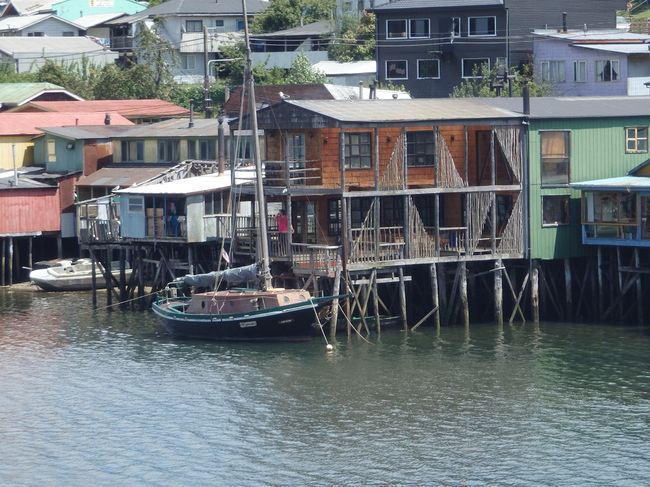
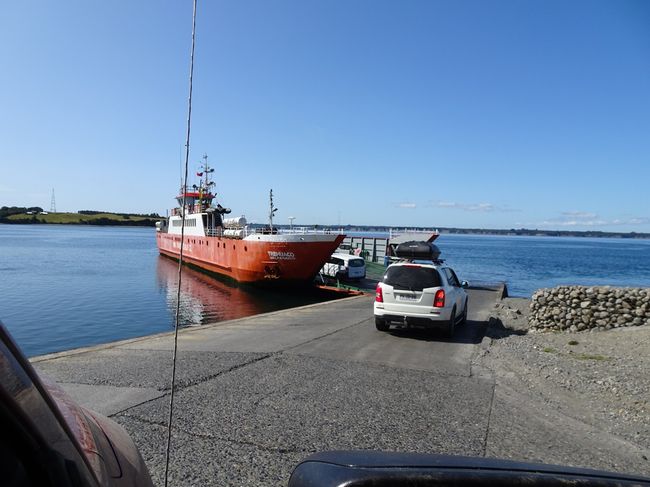
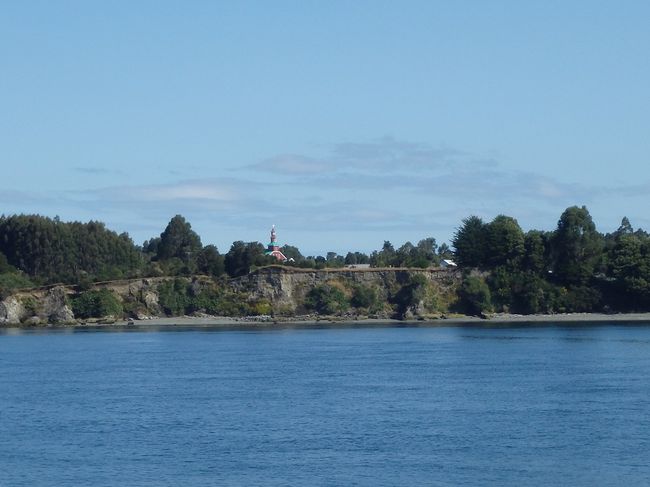
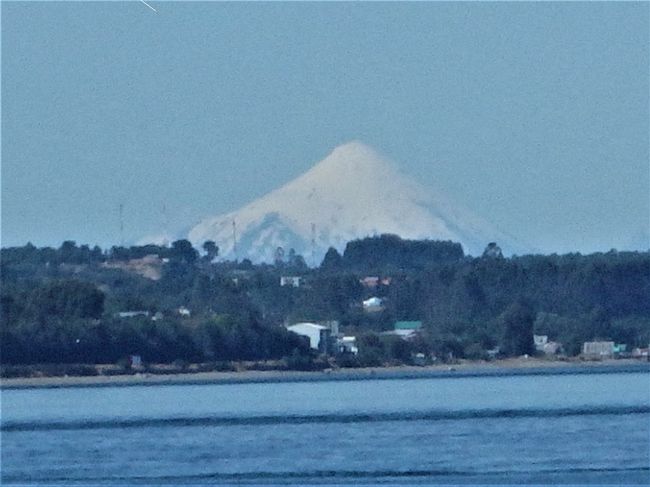
Wɔ Nudɔdɔ na Nyadzɔdzɔgbalẽ
Chiloe is known for its wooden churches, shingle houses, wool sweaters, and oyster and fish farms.
The island was the last Spanish bastion in the independence war of Chile.
In the town of Ancud, like all places in Chiloe built on one or more hills, we see some of the typical shingle-covered houses of Chiloe on the way to the main market. The market is colorful, quite peaceful, and also smells intensively in the fish section.
Afterwards, we start our visit to several of the wooden churches recognized as UNESCO World Heritage Sites. The Jesuits, who came to Chiloe in 1608, wanted to evangelize the indigenous Huilliche people. For this purpose, they built a whole network of wooden churches on the island. This new "Chilote School" was based on the style of Jesuit churches in Central Europe in the 17th century.
Chiloe has a reputation for being "different" from the rest of Chile, but we didn't notice that.
Dalcahue is somewhat touristy "contaminated" but still a very nice place.
The island capital Castro appears quite sleepy to us on Sunday, but the cathedral and the stilt houses are worth seeing.
Chiloe is famous for its wooden churches, shingle houses, wool pullovers, oyster beds, and fish farming.
This island was the last Spanish bastion in the Chilean independence war.
In Ancud, we are passing several of the typical shingle-covered houses on our way to the main market. There you find nice colorful booths selling vegetables, fruit, fish, mussels, and more.
Afterwards, we start our tour of the wooden churches of Chiloe - UNESCO World Cultural Heritage.
The Jesuits wanted to Christianize the local indigenous people of the Huilliche after their arrival here in 1608. They erected a real network of wooden churches around the island to support their plans. The new "Chiloe Style" was based on the style of Jesuit churches in central Europe of the 17th century.
Chiloe is said to be "different" than the other Chile - we could not really recognize that.
Dalcahue is a quite nice village but already touched by tourist business.
Castro, the island's capital, has interesting spots - the cathedral and the stilt houses. Being there on Sunday, we found the city a little sleepy.
Wɔ Nudɔdɔ na Nyadzɔdzɔgbalẽ
Ŋuɖoɖo (1)
Guenter
Wunderschöne Landschften und Phantastische Bilder!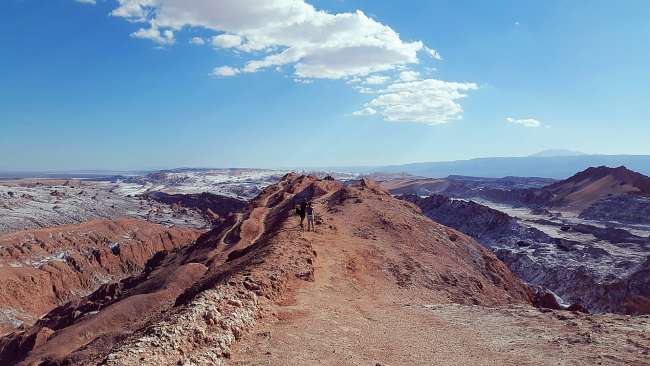
Mɔzɔzɔ ŋuti nyatakakawo Chile
